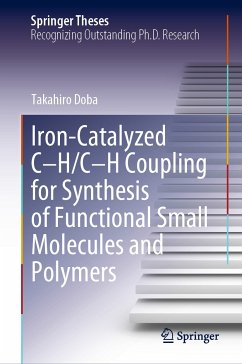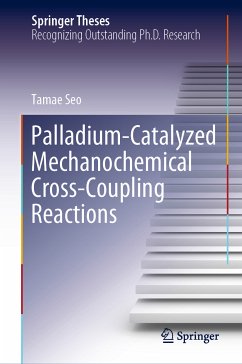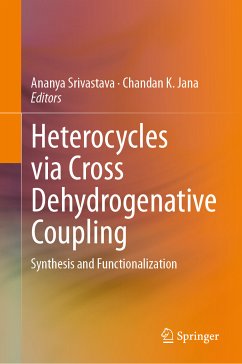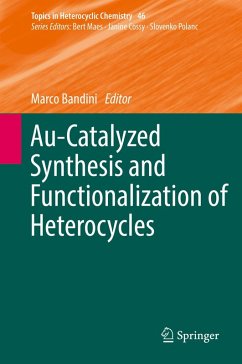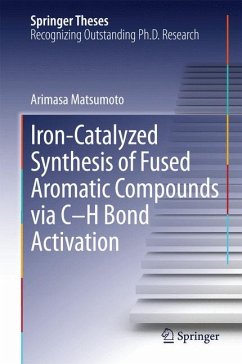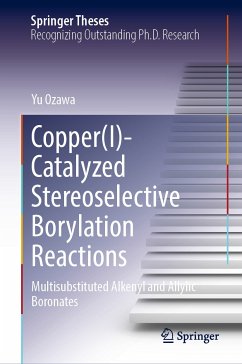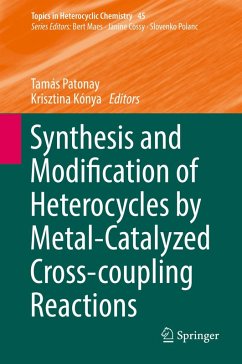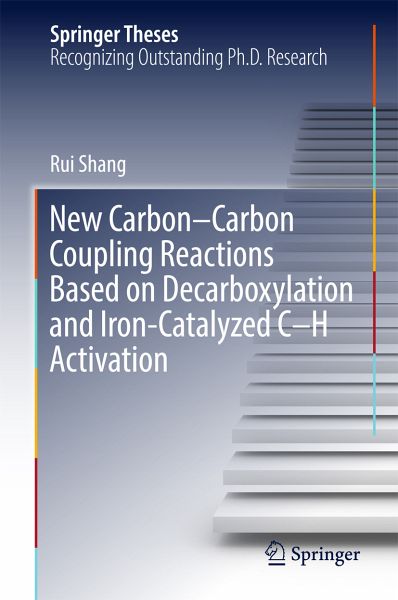
New Carbon-Carbon Coupling Reactions Based on Decarboxylation and Iron-Catalyzed C-H Activation (eBook, PDF)
Versandkostenfrei!
Sofort per Download lieferbar
40,95 €
inkl. MwSt.
Weitere Ausgaben:

PAYBACK Punkte
20 °P sammeln!
This thesis presents the latest developments in new catalytic C-C bond formation methods using easily accessible carboxylate salts through catalytic decarboxylation with good atom economy, and employing the sustainable element iron as the catalyst to directly activate C-H bonds with high step efficiency. In this regard, it explores a mechanistic understanding of the newly discovered decarboxylative couplings and the catalytic reactivity of the iron catalyst with the help of density functional theory calculation.The thesis is divided into two parts, the first of which focuses on the development...
This thesis presents the latest developments in new catalytic C-C bond formation methods using easily accessible carboxylate salts through catalytic decarboxylation with good atom economy, and employing the sustainable element iron as the catalyst to directly activate C-H bonds with high step efficiency. In this regard, it explores a mechanistic understanding of the newly discovered decarboxylative couplings and the catalytic reactivity of the iron catalyst with the help of density functional theory calculation.
The thesis is divided into two parts, the first of which focuses on the development of a series of previously unexplored, inexpensive carboxylate salts as useful building blocks for the formation of various C-C bonds to access valuable chemicals. In turn, the second part is devoted to several new C-C bond formation methodologies using the most ubiquitous transition metal, iron, as a catalyst, and using the ubiquitous C-H bond as the coupling partner.
The thesis is divided into two parts, the first of which focuses on the development of a series of previously unexplored, inexpensive carboxylate salts as useful building blocks for the formation of various C-C bonds to access valuable chemicals. In turn, the second part is devoted to several new C-C bond formation methodologies using the most ubiquitous transition metal, iron, as a catalyst, and using the ubiquitous C-H bond as the coupling partner.
Dieser Download kann aus rechtlichen Gründen nur mit Rechnungsadresse in A, B, BG, CY, CZ, D, DK, EW, E, FIN, F, GR, HR, H, IRL, I, LT, L, LR, M, NL, PL, P, R, S, SLO, SK ausgeliefert werden.




